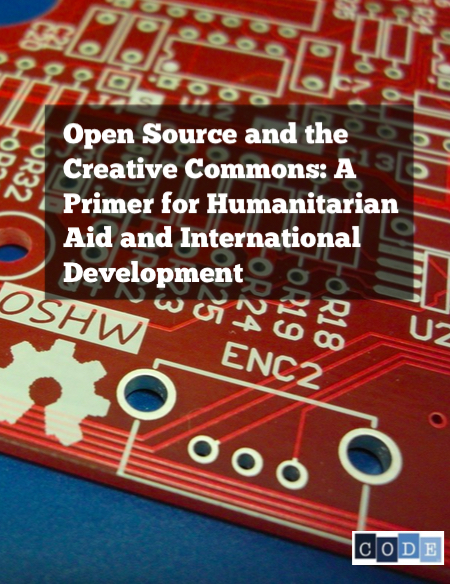Our Primer on How to Use Open Source and the Creative Commons in Aid and Development
As technology becomes a part of more and more aid and development programs, how and why we decide to incorporate new tools is increasingly important.
Over the last few years, the ICT4D community has developed Principles for Digital Development that guide the ethical approaches and process of our work. Number Six is, “Use open standards, open data, open source and open innovation.”
Open source and the Creative Commons are different, but related, concepts. If you're never heard of open source or the Creative Commons, they can be confusing to navigate. That's why we created a short primer for humanitarian aid and international development workers to better understand these concepts and to explore some ways to apply them.
We've found these ideas to be pivotal in our own work and it’s a pleasure to share what we’ve learned with you. We hope that our contribution encourages you and your organization to start a conversation about putting them into action. You can download a PDF version of the primer, which is still in-progress, here.
"Open always wins," says Abundance author and futurist Peter Diamandis, and so far, he seems right. The push for more free and open societies and systems, for more and more of our human heritage to be held not just by a few, but in common, are some of the most relevant and powerful trends of our time.
Those of us working for the public and global good, and taking public funds, have a responsibility to create solutions that feed free and open collaboration, rather than the profit of shareholders or the longevity of our organizations.
If you take away one idea from this primer, we hope it's that the “open” movement is built upon the value of collaboration and the idea that working together yields better and more broadly distributed results than competition. If you feel that this is disruptive, you’re right – sharing breaks down separation.
Whenever we decide to make software open source, or to release our content and works into the Creative Commons, we create a more equal and collaborative world. And isn’t that why we’re working in aid and development in the first place?
The Primer covers these topics:
- What is Open Source?
- How Can I Make my Work Open Source?
- How Do You Make Money from Open Source?
- What is the Creative Commons?
- How Can I Use Creative Commons in my Work?
- What Does “Open” Mean for the Future of Aid and Development?
We hope that the Primer will help to catalyze discussions about what “open” means and how it could be right for you, your work and your organization.
To get in touch about how to you might use open (and Digital Principle #6, “Use open standards, open data, open source and open innovation”) in your aid and development work, email us at info@codeinnovation.com.

